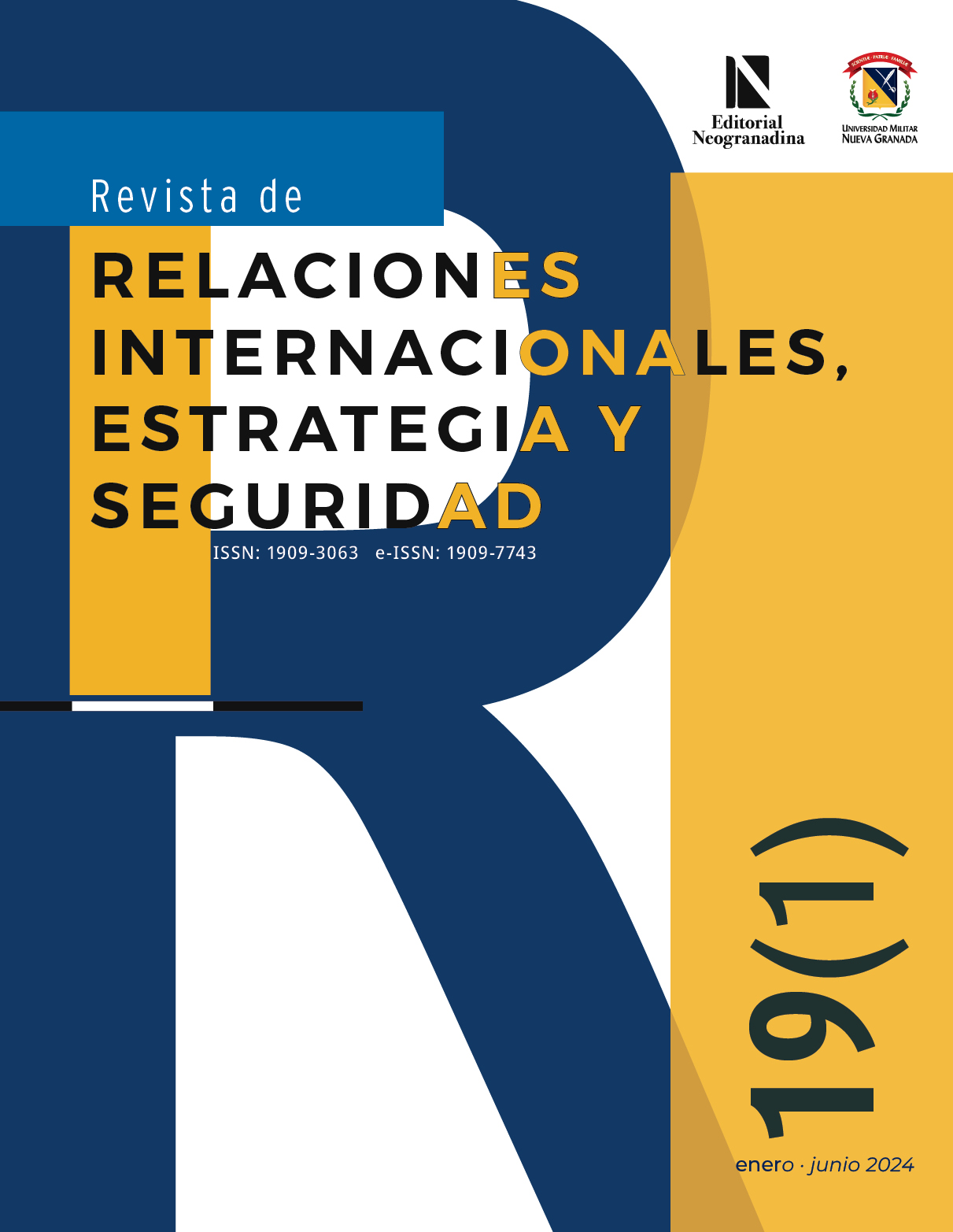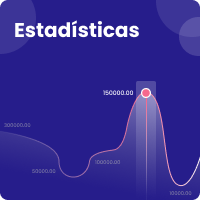O transporte marítimo e seu impacto na sustentabilidade: uma revisão bibliográfica
Resumo
Esta pesquisa tem como objetivo analisar a revisão bibliográfica sobre o transporte marítimo (TM) e seu impacto na sustentabilidade, visando minimizar as emissões de gases tóxicos na América Latina. Para alcançar este objetivo, a base de dados Scopus foi selecionada para realizar a busca da produção científica registrada nos últimos 20 anos, utilizando ferramentas bibliométricas, e com o suporte do software Rstudio foi elaborada uma análise de rede da disciplina. O tipo de pesquisa é quantitativo e a estrutura atual do conhecimento sobre o tema é apresentada em duas etapas, destacando os países, revistas, autores e produção mais significativa; posteriormente, três clusters ou perspectivas de pesquisa que serão tendência de estudo dentro da disciplina são identificados, como eficiência energética e sustentabilidade ambiental, tecnologias em desenvolvimento para a descarbonização do TM e, por fim, o impacto ambiental das emissões de gases de efeito estufa (GEE) em um futuro sustentável. Os resultados afirmam a relevância que o tm tem para o comércio internacional, deixando uma marca significativa na sustentabilidade e no meio ambiente. Conclui-se que a implementação de tecnologias de propulsão mais limpas, o uso de combustíveis mais sustentáveis e a melhoria da eficiência energética dos navios mantêm a indústria do tm como responsável por uma grande quantidade de emissões de gases tóxicos, como CO2, NO2 e S, que contribuem para as mudanças climáticas e a poluição atmosférica.
Downloads
Referências
Altarriba, E., Rahiala, S., Tanhuanpää, T. y Piispa, M. (2022). Developing sustainable shipping and maritime transport: Multi-criteria analysis between emission abatement methods. In Sustainable Development and Innovations in Marine Technologies (pp. 77-84). CRC Press. https://doi.org/10.1201/9781003358961-11
Ampah, J. D., Yusuf, A. A., Afrane, S., Jin, C. y Liu, H. (2021). Reviewing two decades of cleaner alternative marine fuels: Towards imo’s decarbonization of the maritime transport sector. Journal of Cleaner Production, 320, 12 p. https://doi.org/10.1016/j.jclepro.2021.128871
Aps, R., Fetissov, M., Goerlandt, F., Helferich, J., Kopti, M. y Kujala, P. (2015). Towards stamp Based Dynamic
Safety Management of Eco-Socio-Technical Maritime Transport System. Procedia Engineering, 128, 64-73. https://doi.org/10.1016/j.proeng.2015.11.505
Aria, M. y Cuccurullo, C. (2017). Bibliometrix: An R-tool for comprehensive science mapping analysis. Journal of Informetrics, 11(4), 959-975. https://doi.org/10.1016/j.joi.2017.08.007
Arof, A. M. (2015). The application of a combined Delphi-ahp method in maritime transport research-a review. Asian Social Science, 11(23), p. 73. https://doi.org/10.5539/ass.v11n23p73
Arvidsson, A. y Caliandro, A. (2015). Brand Public. The Journal of Consumer Research, 42(5), 727-748. https://doi.org/10.1093/jcr/ucv053
Bagoulla, C. y Guillotreau, P. (2020). Maritime transport in the French economy and its impact on air pollution: An input-output analysis. Marine Policy, 116, 8 p. https://doi.org/10.1016/j.marpol.2020.103818
Bălan, C. (2018). The disruptive impact of future advanced icts on maritime transport: a systematic review. Supply
Chain Management. An International Journal, 25(2), 157-175. https://doi.org/10.1108/SCM-03-2018-0133
Barberi, S., Campisi, T. y Neduzha, L. (2022). The role of cold ironing in maritime transport emissions. International conference of computational methods in sciences and engineering (iccmse, 2021). https://doi.org/10.1063/5.0119881
Benamara, H., Hoffmann, J. y Youssef, F. (2019). Maritime Transport: The Sustainability Imperative. In H. N. Psaraftis (Ed.), Sustainable Shipping: A Cross-Disciplinary View (pp. 1-31). Springer International Publishing. https://doi.org/10.1007/978-3-030-04330-8_1
Bistrovic, N. y Bernecic, D. (2017). Energy efficiency in maritime transport. met: Towards Sustainable, Green and integrated maritime Transport, iamu, p. 47.
Bond, M., Zawacki-Richter, O. y Nichols, M. (2019). Revisiting five decades of educational technology research: A content and authorship analysis of the British Journal of Educational Technology. Journal of the Council for Educational Technology, 50(1), 12-63. https://doi.org/10.1111/bjet.12730
Bosich, D., Vicenzutti, A. y Sulligoi, G. (2020). Environment-friendliness in Maritime Transport: Designing Smart Recharging Stations in North Adriatic Sea. 2020 Fifteenth International Conference on Ecological Vehicles and Renewable Energies (ever), 1-5. https://doi.org/10.1109/EVER48776.2020.9243138
Buermann, J., Georgiev, D., Gerding, E. H., Hill, L., Malik, O., Pop, A., Pun, M., Ramchurn, S. D., Salisbury, E. y Stojanovic, I. (2022). An Agent-Based Simulator for Maritime Transport Decarbonisation. Proceedings of the 21st International Conference on Autonomous
Agents and Multiagent Systems, 1890-1892.
Burel, F., Taccani, R. y Zuliani, N. (2013). Improving sustainability of maritime transport through utilization of Liquefied Natural Gas (lng) for propulsion. Energy, 57, 412-420. https://doi.org/10.1016/j.energy.2013.05.002
Cheng, M. (2016). Sharing economy: A review and agenda for future research. International Journal of Hospitality Management, 57, 60-70. https://doi.org/10.1016/j.ijhm.2016.06.003
Cortez, L., Franco, T. T., Valença, G. y Rosillo-Calle, F. (2021). Perspective Use of Fast Pyrolysis Bio-Oil (fpbo) in Maritime Transport: The Case of Brazil. Energies, 14(16), 47-79. https://doi.org/10.3390/en14164779
Czermański, E., Pawłowska, B., Oniszczuk-Jastrząbek, A. y Cirella, G. T. (2020). Decarbonization of Maritime Transport: Analysis of External Costs. Frontiers in Energy Research, 8. https://doi.org/10.3389/fenrg.2020.00028
Demiroz, F. y Haase, T. W. (2019). The concept of resilience: a bibliometric analysis of the emergency and disaster management literature. Local Government Studies, 45(3), 308-327. https://doi.org/10.1080/03003930.2018.1541796
Duru, O., Lee, J. L. S. y Tei, A. (2018). Special issue iame 2017 conference Maritime Transport Quality
in the Evolving World Trade. International Journal of Transport Economics, 3, p. 364. https://doi.org/10.19272/201806703001
Fahimnia, B., Sarkis, J. y Davarzani, H. (2015). Green supply chain management: A review and bibliometric analysis. International Journal of Production Economics, 162, 101-114. https://doi.org/10.1016/j.ijpe.2015.01.003
Farkas, A., Degiuli, N., Martić, I. y Vujanović, M. (2021). Greenhouse gas emissions reduction potential by using antifouling coatings in a maritime transport industry. Journal of Cleaner Production, 295, pp. 145-156. https://doi.org/10.1016/j.jclepro.2021.126428
Giannopoulos, G. A. y Aifandopoulou-klimis, G. (2004). Inland Maritime Transport in Greece after the Lifting of the Cabotage and Full Liberalization: A Review. Part 1: The Situation “before” and Expected Impacts. Transport Reviews, 24(4), 465-483. https://doi.org/10.1080/0144164042000181699
Gil-Lopez, T. y Verdú-Vázquez, A. (2021). Environmental Analysis of the Use of Liquefied Natural Gas in Maritime Transport within the Port Environment. Sustainability: Science Practice and Policy, 13(21), 1-14. https://doi.org/10.3390/su132111989
Giuffrida, N., Twrdy, E. y Ignaccolo, M. (2023). Special issue on improving the environmental performances of maritime transport and ports. apps. Applied Sciences, 13(3), 17-30. https://doi.org/10.3390/app13031730
Gracia, L. (2014, September 11). ¿Qué es Gephi? Un poco de Java. https://unpocodejava.com/2014/09/11/que-es-gephi/
Groppi, D., Nastasi, B. y Prina, M. G. (2022). The eplan optmac model to plan the decarbonisation of the maritime transport sector of a small island. Energy, 254, 124-342. https://doi.org/10.1016/j.energy.2022.124342
Gu, B. y Liu, J. (2023). A systematic review of resilience in the maritime transport. International Journal of Logistics Research and Applications, 1-22. https://doi.org/10.1080/13675567.2023.2165051
Guerrero, M. I. y Ramírez, Y. M. (2022). Mapeo científico de la cadena de suministro y aplicación tecnológica en la
industria automotriz. Revista Pensamiento Americano, 15(30), 1-12. https://doi.org/10.21803/penamer.15.30.497
Guerrero, M., Acevedo, J. F. S. y Giraldo, J. T. (2022). Reflections on Brexit and Migration: Literature Review. Apuntes del Cenes, 41(74), 111-139. https://doi.org/10.19053/01203053.v41.n74.2022.13735
Gurzki, H. y Woisetschläger, D. M. (2017). Mapping the luxury research landscape: A bibliometric citation analysis. Journal of Business Research, 77, 147-166. https://doi.org/10.1016/j.jbusres.2016.11.009
Hernández, S. D. (2011). La energía solar fotovoltaica. http://www.aegit.es/res/revistas/Antena166_11_Medioambiente.pdf
Hurtado, P. D. y Ortiz, D. O. (2022). Perspectivas y tendencias de investigación en emprendimiento social. Desarrollo Gerencial, 14(1), 1-26. https://doi.org/10.17081/dege.14.1.5082
Işıklı, E., Aydın, N., Bilgili, L. y Toprak, A. (2020). Estimating fuel consumption in maritime transport. Journal of Cleaner Production, 275, 124-142. https://doi.org/10.1016/j.jclepro.2020.124142
Jayasinge, S., Lokuketagoda, G., Enshaei, H., Shagar, V. y Ranmuthugala, D. (2015). Electro-technologies for energy efficiency improvement and low carbon emission in maritime transport. 16th Annual General Assembly of the International Association of Maritime Universities, 119-123.
Jović, M., Tijan, E., Brčić, D. y Pucihar, A. (2022). Digitalization in Maritime Transport and Seaports: Bibliometric, Content and Thematic Analysis. Journal of Marine Science and Engineering, 10(4), p. 486. https://doi.org/10.3390/jmse10040486
Jović, M., Tijan, E., Žgaljić, D. y Aksentijević, S. (2020). Improving Maritime Transport Sustainability Using Blockchain-Based Information Exchange. Sustainability: Science Practice and Policy, 12(21), 1-19. https://doi.org/10.3390/su12218866
Kamble, S. S., Gunasekaran, A. y Gawankar, S. A. (2018). Sustainable Industry 4.0 framework: A systematic literature review identifying the current trends and future perspectives. Process Safety and Environmental Protection, 117, 408-425. https://doi.org/10.1016/j.psep.2018.05.009
Kuntner, T. y Teichert, T. (2016). The scope of price promotion research: An informetric study. Journal of Business Research, 69(8), 2687-2696. https://doi.org/10.1016/j.jbusres.2015.11.004
La Scalia, G., Mancini, S., Adelfio, L. y Giallanza, A. (2023). Development of a Vessel Scheduling Optimization Model to improve Maritime Transport sustainability. Sustainable Futures, 6, 100-123. https://doi.org/10.1016/j.sftr.2023.100123
Lindstad, H. y Eskeland, G. S. (2015). Low carbon maritime transport: How speed, size and slenderness amounts to substantial capital energy substitution. Transportation Research Part D: Transport and Environment, 41, 244-256. https://doi.org/10.1016/j.trd.2015.10.006
Markowski, J. y Pielecha, I. (2019). The potential of fuel cells as a drive source of maritime transport. iop Conference Series: Earth and Environmental Science, 214(1), 012-019. https://doi.org/10.1088/1755-1315/214/1/012019
Melnyk, O., Onyshchenko, S., Onishchenko, O., Shumylo, O., Voloshyn, A., Ocheretna, V. y Fedorenko, O. (2024). Implementation Research of Alternative Fuels and Technologies in Maritime Transport. In S. Boichenko, A. Zaporozhets, A. Yakovlieva y I. Shkilniuk (Eds.), Modern Technologies in Energy and Transport (pp. 13-21). Springer Nature Switzerland. https://doi.org/10.1007/978-3-031-44351-0_2
Merediz-Solà, I. y Bariviera, A. F. (2019). A bibliometric analysis of bitcoin scientific production. Research in International Business and Finance, 50, 294-305. https://doi.org/10.1016/j.ribaf.2019.06.008
Merk, O., Hoffmann, J. y Haralambides, H. (2022). Postcovid-19 scenarios for the governance of maritime transport and ports. Maritime Economics & Logistics, 24(4), 673-685. https://doi.org/10.1057/s41278-022-00228-8
Mimica, M., Perčić, M., Vladimir, N. y Krajačić, G. (2022). Cross-sectoral integration for increased penetration of renewable energy sources in the energy system - Unlocking the flexibility potential of maritime transport electrification. Smart Energy, 8, 89-103. https://doi.org/10.1016/j.segy.2022.100089
Mondello, G., Salomone, R., Saija, G., Lanuzza, F. y Gulotta, T. M. (2023). Life Cycle Assessment and Life Cycle Costing for assessing maritime transport: a comprehensive literature review. Maritime Policy & Management, 50(2), 198-218. https://doi.org/10.1080/03088839.2021.1972486
Monios, J. y Wilmsmeier, G. (2020). Deep adaptation to climate change in the maritime transport sector - A new paradigm for maritime economics? Maritime Policy & Management, 47(7), 853-872. https://doi.org/10.1080/03088839.2020.1752947
Nepomuceno de Oliveira, M. A., Szklo, A. y Castelo Branco, D. A. (2022). Implementation of Maritime Transport Mitigation Measures according to their Marginal Abatement Costs and their Mitigation Potentials. Energy Policy, 160, 112-699. https://doi.org/10.1016/j.enpol.2021.112699
Novo-Corti, I. y González-Laxe, F. (2009). Maritime transport and trade: The impact of European transport policy. An overview of maritime freight transport patterns. European Research Studies, 12(1), p. 131. https://doi.org/10.35808/ersj/215
Orosa, J. A. (2023). Sustainability in Maritime Transport: Advances, Solutions and Pending Tasks. nato Advanced Science Institutes Series E: Applied Sciences, 13(13), 7618. https://doi.org/10.3390/app13137618
Pérez, D. S. (2014). Reducción de emisiones de CO2 en el sector del transporte marítimo mediante el empleo de la tecnología Cold Ironing. Dínamo Técnica: Revista Gallega de Energía, 13, 14-16.
Pizzi, S., Caputo, A., Corvino, A. y Venturelli, A. (2020). Management research and the un sustainable development goals (Sdgs): A bibliometric investigation and systematic review. Journal of Cleaner Production, 276, 22-40. https://doi.org/10.1016/j.jclepro.2020.124033
Poulsen, R. T., Ponte, S. y Sornn-Friese, H. (2018). Environmental upgrading in global value chains: The potential and limitations of ports in the greening of maritime transport. Geoforum, Journal of Physical, Human, and Regional Geosciences, 89, 83-95. https://doi.org/10.1016/j.geoforum.2018.01.011
Psaraftis, H. N. y Kontovas, C. A. (2020). Decarbonization of Maritime Transport: Is There Light at the End of the Tunnel? Sustainability: Science Practice and Policy, 13(1), p. 237. https://doi.org/10.3390/su13010237
Puck, J. y Filatotchev, I. (2020). Finance and the multinational company: Building bridges between finance and global strategy research. Global Strategy Journal, 10(4), 655-675. https://doi.org/10.1002/gsj.1330
Rehmatulla, N. y Smith, T. (2020). The impact of split incentives on energy efficiency technology investments in maritime transport. Energy Policy, 147, 111-721. https://doi.org/10.1016/j.enpol.2020.111721
Remyha, Y., Zaiarniuk, O., Lozova, T., Trushkina, N., Yakushev, O. y Korovin, Y. (2023). Energy-saving technologies for sustainable development of the maritime transport logistics market. IOP Conference Series: Earth and Environmental Science, 1126(1), 012-037. https://doi.org/10.1088/1755-1315/1126/1/012037
Rodríguez, D., González, N., Camarero, A. y Vaca, J. (2023). Development of a “Smart Dry Port” indicator and ranking calculation for Spanish dry ports. Future Transportation, 3(4), 1272-1291. https://doi.org/10.3390/futuretransp3040070
Schrooten, L., De Vlieger, I., Panis, L. I., Chiffi, C. y Pastori, E. (2009). Emissions of maritime transport: a European reference system. The Science of the Total Environment, 408(2), 318-323. https://doi.org/10.1016/j.scitotenv.2009.07.037
Seithe, G. J., Bonou, A., Giannopoulos, D., Georgopoulou, C. A. y Founti, M. (2020). Maritime Transport in a Life Cycle Perspective: How Fuels, Vessel Types, and Operational Profiles Influence Energy Demand and Greenhouse Gas Emissions. Energies, 13(11), 27-39. https://doi.org/10.3390/en13112739
Serrano, B. M., González, N., Soler, F. y Santos, A. E. (2021). Análisis Business Observation Tool de la sostenibilidad portuaria. Aplicación al sistema portuario español. Revista Transporte y Territorio, 25. https://doi.org/10.34096/rtt.i25.8070
Shafique, M. (2013). Thinking inside the box? Intellectual structure of the knowledge base of innovation research (1988-2008). Strategic Management Journal, 34(1), 62-93. https://doi.org/10.1002/smj.2002
Small, H. (1973). Co-citation in the scientific literature: A new measure of the relationship between two documents. Journal of the American Society for Information Science. American Society for Information Science, 24(4), 265-269. https://doi.org/10.1002/asi.4630240406
Small, H. G. (1977). A Co-Citation Model of a Scientific Specialty: A Longitudinal Study of Collagen Research. Social Studies of Science, 7(2), 139-166. https://doi.org/10.1177/030631277700700202
Small, H. y Griffith, B. C. (1974). The Structure of Scientific Literatures I: Identifying and Graphing Specialties. Science Studies, 4(1), 17-40. https://doi.org/10.1177/030631277400400102
Smith, J. R. y Mastorakos, E. (2023). A Systems-Level Study of Ammonia and Hydrogen for Maritime Transport. Maritime Transport Research, 5, 99-118. https://doi.org/10.1016/j.martra.2023.100099
Stopford, M. (2022). Maritime governance: piloting maritime transport through the stormy seas of climate change. Maritime Economics & Logistics, 24(4), 686-698. https://doi.org/10.1057/s41278-022-00227-9
Tani, M., Papaluca, O. y Sasso, P. (2018). The System Thinking Perspective in the Open-Innovation Research: A Systematic Review. Journal of Open Innovation: Technology, Market, and Complexity, 4(3), p. 38. https://doi.org/10.3390/joitmc4030038
Viana, M., Hammingh, P., Colette, A., Querol, X., Degraeuwe, B., Vlieger, I. de y van Aardenne, J. (2014). Impact of maritime transport emissions on coastal air quality in Europe. Atmospheric Environment, 90, 96-105. https://doi.org/10.1016/j.atmosenv.2014.03.046
Viana, M., Rizza, V., Tobías, A., Carr, E., Corbett, J., Sofiev, M., Karanasiou, A., Buonanno, G. y Fann, N. (2020). Estimated health impacts from maritime transport in the Mediterranean region and benefits from the use of cleaner fuels. Environment International, 138,
-670. https://doi.org/10.1016/j.envint.2020.105670
Villacreses, G., Salinas, S. S., Ortiz, W. D., Villacís, S., Martínez-Gómez, J. y Narváez C., R. A. (2017). Environmental Impact Assessment of Internal Combustion and Electric Engines for Maritime Transport. Environmental Processes, 4(4), 907-922. https://doi.org/10.1007/s40710-017-0270-7
Watanabe, M. D. B., Cherubini, F., Tisserant, A. y Cavalett, O. (2022). Drop-in and hydrogen-based biofuels for maritime transport: Country-based assessment of climate change impacts in Europe up to 2050. Energy Conversion & Management, 273, 116-403. https://doi.org/10.1016/j.enconman.2022.116403
Wilmsmeier, G., Hoffmann, J. y Sánchez, R. J. (2006). The Impact of Port Characteristics on International Maritime Transport Costs. Research in Transportation Economics, 16, 117-140. https://doi.org/10.1016/S0739-8859(06)16006-0
Wilmsmeier, G. y Monios, J. (2020). Geographies of maritime transport. In Geographies of Maritime Transport (pp. 1-15). Edward Elgar Publishing. https://doi.org/10.4337/9781788976640.00005
Xing, H., Cao, X. y Su, Z. (2022). The rule of law for marine environmental governance in maritime transport: China’s experience. Frontiers in Marine Science, 9. https://doi.org/10.3389/fmars.2022.1083420
Zanobetti, F., Pio, G., Jafarzadeh, S., Muñoz Ortiz, M. y Cozzani, V. (2023). Decarbonization of maritime transport: Sustainability assessment of alternative power systems. Journal of Cleaner Production, 417, 137-989. https://doi.org/10.1016/j.jclepro.2023.137989
Zhang, W., Wu, Z., Liu, Y. y Li, Z. (2014). Quantitative analysis for the development of maritime transport efficiency. In Algorithms and Architectures for Parallel Processing (pp. 543-552). Springer International Publishing. https://doi.org/10.1007/978-3-319-11194-0_47
Zhang, Y., Wang, M., Zipperle, M., Abbasi, A. y Tani, M. (2023). RelRank: A relevance-based author ranking algorithm for individual publication venues. Information Processing & Management, 60(1), 103-156. https://doi.org/10.1016/j.ipm.2022.103156
Zhilenkov, A. A. y Kapitonov, A. A. (2017). Assessment of destabilizing factor for automatic control systems in propulsion systems of mechatronic and maritime transport objects. iop Conference Series: Earth and Environmental Science, 87(8), 49-55. https://doi.org/10.1088/1755-1315/87/8/082059
Zuluaga, M., Robledo, S., Osorio, G. A., Yathe, L., González, D. y Taborda, G. (2016). Metabolómica y pesticidas: revisión sistemática de literatura usando teoría de grafos para el análisis de referencias. Nova, 14(25), 121-138. https://doi.org/10.22490/24629448.1735
Zupic, I. y Čater, T. (2015). Bibliometric Methods in Management and Organization. Organization- al Research Methods, 18(3), 429-472. https://doi.org/10.1177/1094428114562629
Zuschke, N. (2020). An analysis of process-tracing research on consumer decision-making. Journal of Business Research, 111, 305-320. https://doi.org/10.1016/j.jbusres.2019.01.028

Copyright (c) 2024 Revista de Relaciones Internacionales, Estrategia y Seguridad

Este trabalho está licenciado sob uma licença Creative Commons Attribution-NonCommercial-NoDerivatives 4.0 International License.











